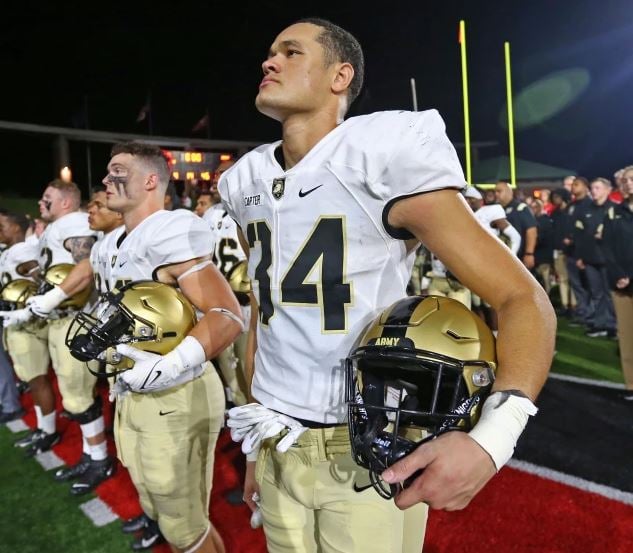In 2019, President Donald Trump helped push through a rule that would allow college athletes that attended military institutions, such as the US Naval Academy or West Point, to defer their obligatory military service while pursuing a career in professional sports. After graduating from an academy, cadets/midshipmen are obligated to serve five years of active duty and three years of inactive reserves as “payment” for their education.
Many cadets/midshipmen that are set to graduate this year originally enrolled in their respective academies under the presumption that the rule would protect them when it came time for them to graduate and make a career decision. A shot at professional sports did not cancel their commitment to their obligatory service, but simply allowed them to defer it until after that opportunity was fulfilled or exhausted. But under the Biden administration and this democrat controlled Congress, that simply may not be the case.
ESPN reports:
Tucked in Section 553 of the National Defense Authorization Act, which passed the Senate on Thursday and is headed to President Joe Biden’s desk, is language that states an “agreement by a cadet or midshipman to play professional sport constitutes a breach of service obligation.” The bill covers the Army, Navy and Air Force and states: “The cadet may not obtain employment, including as a professional athlete, until after completing the cadet’s commissioned service obligation.” That obligation is, according to Army, five years of active duty and three years in the individual ready reserve.
If Joe Biden signs this bill into law as it’s written, it would take effect immediately. The signing is expected to be sometime next week.
TRENDING: BREAKING: WE’RE BACK!… The Gateway Pundit Unsuspended from Twitter – Thank You Elon Musk
Andre Carter II is an Army linebacker who is/was expected to go in the first round of the NFL draft. This would be the Army’s first 1st round draft pick since 1947. The Army has only had two players total drafted to the NFL since 1969, according to the ESPN article. The rule that was introduced by President Trump was intended to make the military academies more appealing for student athletes, who often times turn out to be some of the most proficient and effective cadets/midshipmen, by allowing them the opportunity to play first, then serve.
Carter still can “drop out” of the academy and pay back any tuition costs, which he’d likely be able to do if drafted in the first round. But the idea of forfeiting four years of your life, the prestige of graduating from a military academy, and a tremendous amount of money because political leadership changed a rule that likely influenced his decision to play at West Point in the first place is unreasonable at best.
Section 553 needs to, at the very least, be amended to “grandfather” in those players who committed to the academies while the 2019 rule was in effect.




